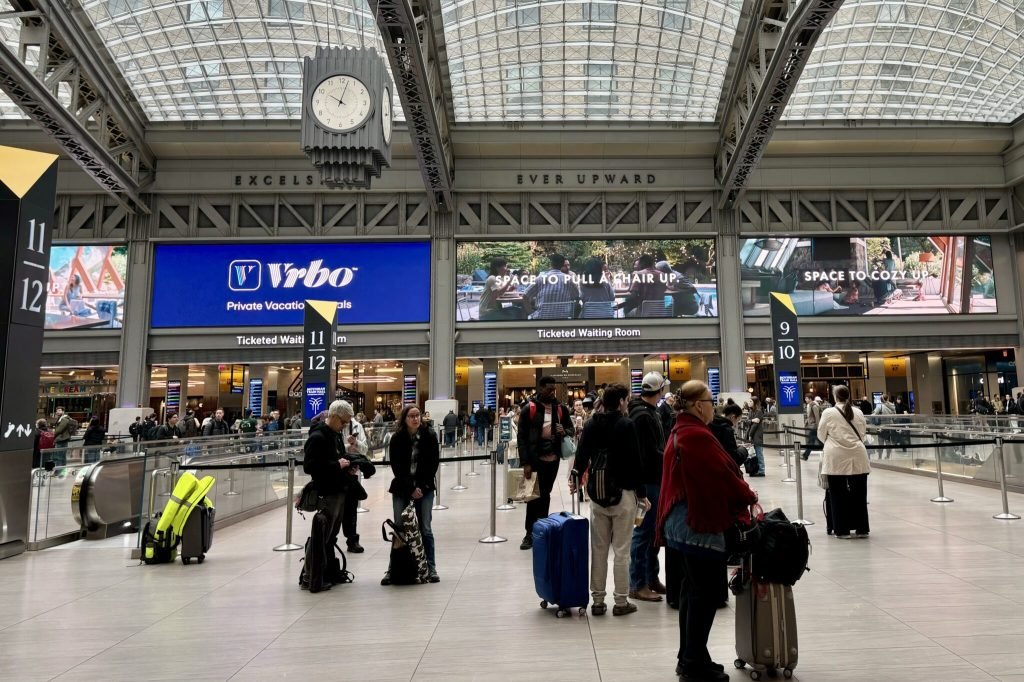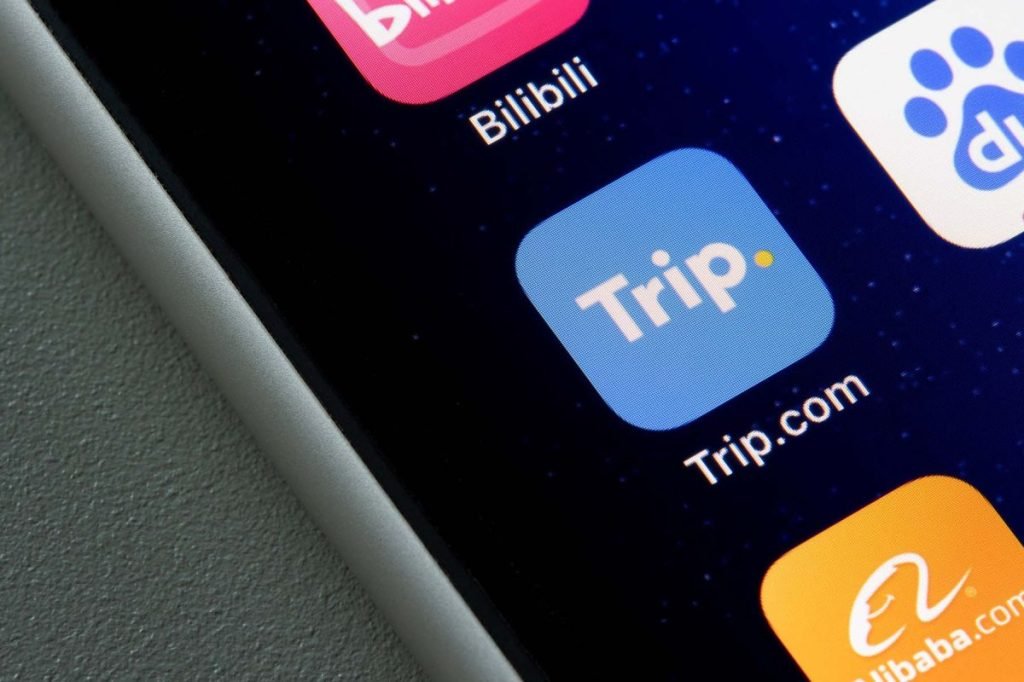Travel Market Insights
Travalyst CEO Sally Davey Steps Down

Sally Davey, CEO of sustainable travel initiative Travalyst, is stepping down after five years in the role.
Travalyst was founded in 2019 by Prince Harry along with a coalition of five travel companies, including Google, Amadeus, Booking.com, and Expedia. The not-for-profit works with leaders across the travel and tourism in
Travel Market Insights
Boom Supersonic CEO Goes All-In on Supersonic Travel

Supersonic passenger travel may have died with Concorde in 2003, but Boom Supersonic CEO Blake Scholl told the Skift Travel Podcast that the barriers that doomed it are gone. His goal: New York to London in three hours by the end of 2029.
Boom, he argued, has solved key technological and regulatory barriers. The company’s jet, XB-1, recently became the first privately built aircraft to break the sound barrier, proving that supersonic flight can be achieved outside of government programs and at a fraction of the historical cost.
“We are a minimum of six times more capital efficient than the old guys,” Scholl told co-hosts Sarah Kopit and Seth Borko, adding that Boom’s passenger jet program could be delivered for billions less than traditional aerospace players would spend.
Listen to This Podcast
🎧 Subscribe
Apple Podcasts | Spotify | YouTube | RSS
Beyond the Sonic Boom
One important innovation is the company’s approach to the dreaded sonic boom. Using algorithms originally developed for computer gaming, Boom created “Boomless Cruise,” a software-driven technique that allows aircraft to fly supersonically without creating disruptive shockwaves on the ground. “It’s not about the airplane — it’s about how you fly it,” Scholl said.
This capability helped unlock a key regulatory reversal earlier this year: the end of a 52-year U.S. ban on civilian supersonic flight. Scholl said Boom demonstrated its solution, then moved quickly in Washington to secure bipartisan support. “From our first supersonic flight in February to regulatory approval in June, it took just 115 days,” he noted.
Rethinking Concorde’s Legacy
Skeptics — including Air France’s CEO — argue that supersonic travel is simply too costly and complex to ever scale. Scholl countered that such views rely on outdated assumptions.
Concorde, he said, was a Cold War prestige project that never prioritized commercial viability. Boom’s Overture aircraft, by contrast, is being co-developed with airlines like United, American, and Japan Airlines, which have already placed pre-orders.
With round-trip fares projected around $3,500 across the Atlantic, Boom is positioning its service squarely in the business-class segment. Early flights, however, could command far higher prices given limited supply and a vastly improved onboard product.
Ripple Effects for Global Travel
If Boom succeeds, the implications extend far beyond aviation. Scholl drew historical parallels to the jet age of the 1960s, which opened Hawaii to mass tourism, transformed professional sports schedules, and even enabled Nike’s global rise. Supersonic, he argued, could spark similar second-order shifts in destinations, culture, and commerce.
“We’re not smart enough to predict every effect,” Scholl said. “But one thing we can be sure of is it will mean more travel and more cultural connection.”
What Comes Next
Boom expects to roll its first Overture passenger jet out of the hangar in 2027, fly it in 2028, and carry travelers by the end of 2029. The company is also working on next-generation engines designed to achieve supersonic speeds without the noisy and inefficient afterburners that hampered Concorde.
For now, Scholl is betting that speed will once again reshape how — and how often — people travel. “Boom can be a bigger company than Boeing,” he said. “The demand is there. The only question is execution.”
Travel Market Insights
Moneyball for Hotels, Penn Station’s Overhaul and Huge Labor Day Air Travel

Good morning from Skift. It’s Thursday, August 28. Here’s what you need to know about the business of travel today.
Michelle Russo has built HotelAVE into a 12 billion dollar hotel asset management firm by crunching hotel performance data to identify gaps between what properties should earn and what they actually generate.
Senior Hospitality Editor Sean O’Neill writes that HotelAVE has found millions in additional profit at properties by questioning conventional wisdom about everything from housekeeping schedules to room pricing strategies.
At the typical full-service hotel, improvements can include basic changes like implementing amenity fees, along with more complex revenue management strategies around room type pricing, distribution channels, and market segmentation.
Listen to This Podcast
🎧 Subscribe
Apple Podcasts | Spotify | Youtube | RSS
The firm has also developed its own software to manage data from the systems used by multiple hotel management companies.
Next, officials from the Trump administration have announced that a multi-billion-dollar renovation of New York’s Penn Station will start by the end of 2027, writes Airlines Reporter Meghna Maharishi.
The administration, which took control of the project this spring, is partnering with Amtrak to renovate the station. Amtrak executive Andy Byford, who was appointed by President Donald Trump, said he was open to moving Madison Square Garden for the renovations.
Amtrak also debuted its new Acela trains, which are the fastest trains in the U.S., operating at around 160 miles per hour.
Finally, U.S. airlines are getting ready to cap their busiest summer in 15 years with large numbers of flyers this Labor Day weekend, reports Associate Editor Rashaad Jorden.
TSA said it expects to screen nearly 17.4 million people between Thursday and September 3, a slight increase from last year. United Airlines and American Airlines anticipate setting Labor Day holiday records. The FAA estimates more than 5 million flights have taken off since Memorial Day weekend.
Travel Market Insights
Answer Three Questions, Get a Bookable Trip

Trip.com Group’s latest AI push reads like a bet on doing more with less. The company is trying to shrink the work a traveler must do to plan a trip. Answer three simple questions — destination, length, travel style — or drop in a single image. The system then serves a full, bookable itinerary.
The company ties those quick inputs to real booking data, that includes verified inventory, live prices and availability, and millions of internal signals. This ensures suggestions are meant to be actionable, and not just aspirational.
The company also hands control back to users. The itinerary is only a starting point. Travelers can edit routes on an interactive map, swap attractions, and call in a human agent to polish details. That combo of automated speed plus human finish is where the company is trying to find its edge.
In its latest earnings call, James Liang, co-founder and executive chairman of Trip.com Group, said the upgraded Trip Planner, a on
-

 Brand Stories1 month ago
Brand Stories1 month agoBloom Hotels: A Modern Vision of Hospitality Redefining Travel
-

 Brand Stories1 month ago
Brand Stories1 month agoCheQin.ai sets a new standard for hotel booking with its AI capabilities: empowering travellers to bargain, choose the best, and book with clarity.
-

 Destinations & Things To Do1 month ago
Destinations & Things To Do1 month agoThis Hidden Beach in India Glows at Night-But Only in One Secret Season
-

 Destinations & Things To Do1 month ago
Destinations & Things To Do1 month agoUntouched Destinations: Stunning Hidden Gems You Must Visit
-

 AI in Travel1 month ago
AI in Travel1 month agoAI Travel Revolution: Must-Have Guide to the Best Experience
-

 Family Travel2 months ago
Family Travel2 months agoThings to Do Indoors in New Jersey
-

 Brand Stories2 months ago
Brand Stories2 months agoVoice AI Startup ElevenLabs Plans to Add Hubs Around the World
-

 Brand Stories1 month ago
Brand Stories1 month agoContactless Hospitality: Why Remote Management Technology Is Key to Seamless Guest Experiences
-

 Restaurants & Food5 months ago
Restaurants & Food5 months ago10 New Restaurants In Delhi NCR To Head To This Month
-

 Brand Stories2 months ago
Brand Stories2 months agoHow Elon Musk’s rogue Grok chatbot became a cautionary AI tale













You must be logged in to post a comment Login